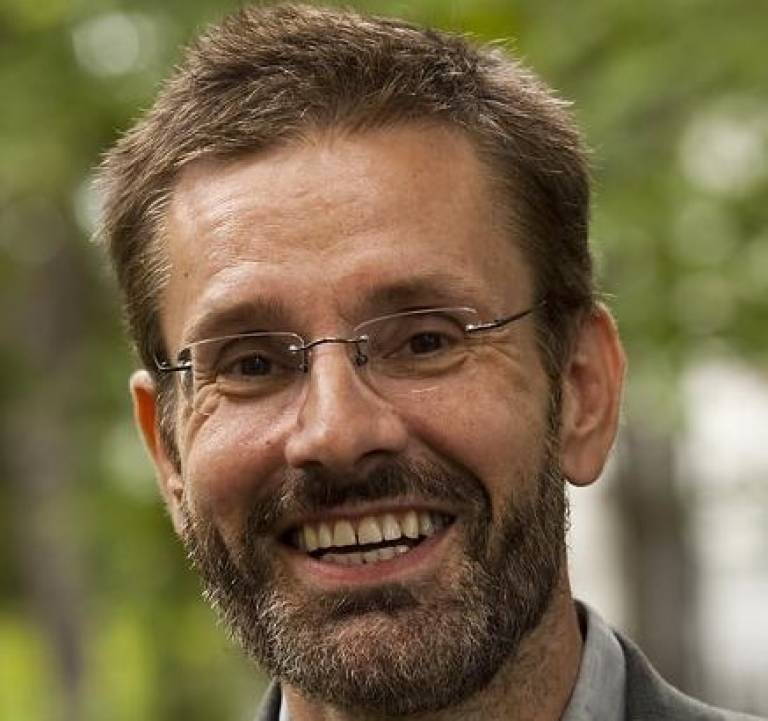The Role of International Courts in Global Governance
15 December 2016
An interview with Andreas Føllesdal, Professor of Political Philosophy in the Faculty of Law at University of Oslo and Co-Director of PluriCourts.

What does your own research on global governance currently focus on?
I co-direct PluriCourts, a centre for the study of legitimacy of international courts. We look at the appropriate role for courts and court-like bodies in the area of human rights, trade, investment, environmental governance and international criminal law. It's a ten-year project funded by the Norwegian Research Council.
We are currently particularly interested in the difficult relationship between African states and the International Criminal Court (ICC) as a number of African states have announced their intention to leave the ICC, accusing it of an anti-African bias.
But discussions about the appropriate role of international courts are also happening elsewhere. For example, some would argue that the vote on Brexit was, among other things, an indication of how sceptical people in the UK are towards institutions such as the Court of Justice of the European Union (CJEU) or the European Court of Human Rights (ECHR).
Going forward, what is the biggest challenge for global governance research? What are we currently missing?
A number of political scientists have pointed to a trend towards nationalist retreat. The value of international collaborations and agreements is increasing being questioned. We can see this in the discussions surrounding Brexit as well as in some statements by Donald Trump, who has called for a retreat from international trade agreements and security alliances such as NATO. Trying to understand what is behind this new scepticism and why some political forces are so successful at exploiting it, is an interesting and important issue. My colleagues are also witnessing a retreat from some global collaborative arrangements in favour of regional networks. So, states in different regions of the world are saying: Let's address problems on a regional rather than on a global level. As these new structures of governance develop and consolidate, there is a lot for scholars to think about, in particular questions of legitimacy.
Finally, in the field of international courts, questions of representation are increasingly important: Why are there so few women sitting on international courts? How should different religions, political traditions, and regions be represented? Is there a systematic and problematic bias in international treaties?
How did you become interested in this field?
I have been interested in issues of international and global justice since fairly early on in my studies. Global governance spans many different disciplines so it is helpful that I've worked and studied in a multidisciplinary setting since my undergraduate years.
What does the term global governance mean to you?
One way to approach global governance is to look at the various 'ways by which actors are influencing other actors' opportunity sets at the global level'. These actors can be governments interacting with each other in a formal way but some structures of interaction are much more informal. There is continuous contestation and there are competing sources of authority and legitimacy. Different actors try to influence other actors' actions through modes other than commanding them to do something.
Over the past year we have seen both highs and lows in global policy making. How optimistic/pessimistic are you regarding the future of Global Governance?
I don't regard these ebbs and flows as something to be optimistic or pessimistic about. For instance, it may well be that negative reactions to international trade or investment agreements are an expression of normatively appropriate scepticism, drawing attention to the fact that current trade and investment regimes have not been sufficiently attentive to the impact these agreements have on different regions and countries.
There may be a systemic effect whereby the governments of poorer states are less able to redistribute wealth within their populations, so the fact that we don't see more agreements being concluded and existing ones are being questioned might be an indication that current agreements may have gone too far and may have to be modified.
Any advice for students or scholars of Global Governance?
Global governance is going to remain an extremely important issue both politically and academically, so rush ahead with it! Whether you intend to go into governance institutions, research, NGOs - they are all directly confronted with issues of global governance. I think one important aspect is that academic and professional hiring is increasingly globalised so in many cases you are competing globally for positions. This also means that where you get your education becomes more and more important. UCL is clearly one the best institutions to be in, so you've picked the right spot!
This interview was conducted by Hannah-Johara Dokal (MSc Global Governance and Ethics) at the inaugural Global Governance International Network Meeting hosted by the Global Governance Institute in November 2016.
Andreas Føllesdal is a Professor of Political Philosophy in the Faculty of Law at University of Oslo and Co-Director of PluriCourts, a Centre of Excellence for the Study of the Legitimate Roles of the Judiciary in the Global Order.
 Close
Close


